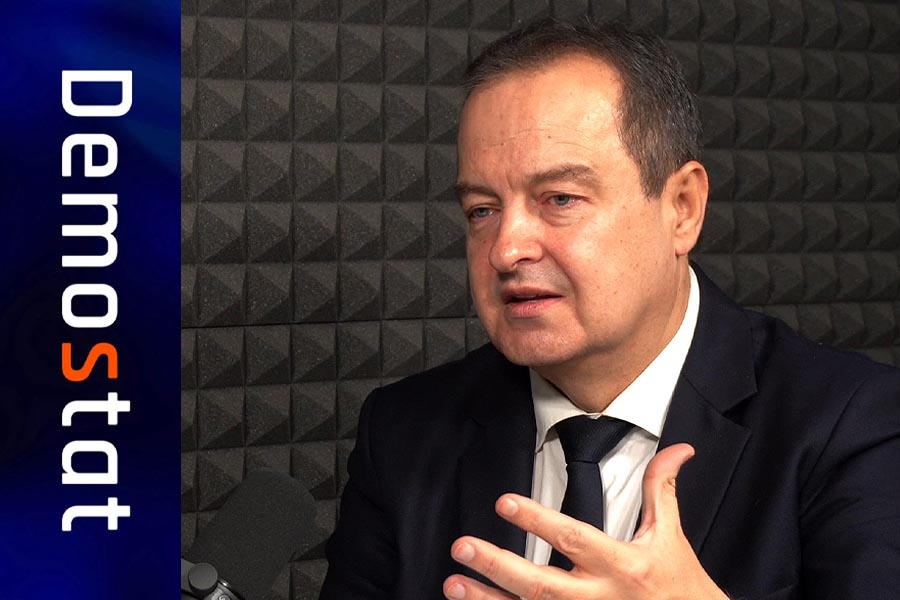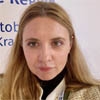Dacic consistently points out, especially during the campaign period, that both Tito and Milosevic represent the past. Dacic positions himself as the present, stating that the future belongs to the children born in the 1990s and 2000s who have a completely different approach.

Dacic consistently points out, especially during the campaign period, that both Tito and Milosevic represent the past. Dacic positions himself as the present, stating that the future belongs to the children born in the 1990s and 2000s who have a completely different approach.

Addressing the context of 2023, Dacic refers to a model he terms "SPS 2023," which, in his view, is much closer to what he envisions as "SPS 2050" rather than "SPS 1990." He suggests that a return to the ways of the past, specifically to the era of the 1990s, is practically impossible. This stance reflects an attempt to modernize the partys image and adapt its ideology to contemporary societal and political realities, while still holding onto the fundamental principles of socialism and patriotism.
Ivica Dacic, President of the Socialist Party of Serbia (SPS), carrier of the electoral list "Ivica Da?i? - Prime Minister of Serbia," and Minister of Foreign Affairs in a caretaker capacity, expressed in the "Pola sata Demostata" show that the SPS has never relied on public opinion polls, as they tend to be inaccurate, often to the detriment of the SPS. He emphasized the partys desire to gain a significant number of votes and publicly declared the intention to continue cooperation with the Serbian Progressive Party (SNS).
Dacic highlighted that since 2012, the socialists have consistently achieved election results above 10%. "Last year we had 11.4% of the votes, and I expect this trend to continue," he stated.
The SPS leader dismissed any possibility of post-election cooperation with the opposition, including Dragan ?ilas. As he explained, aside from numerical aspects, there are substantial issues of agreement and disagreement regarding state and national interests that are crucial.
"Coalition capacity essentially means nothing if adequate conditions for such are not created, and its not just about numbers. Our relations with Vucic were not based only on numbers but primarily on the compatibility of political goals. Since 2014, we were not needed for forming a majority, but it was beneficial for the political stability of Serbia. On the other hand, there are parties with whom, despite a mathematical possibility of cooperation, such collaboration is practically impossible due to vast differences on vital national and state interests," said Dacic.
In response to a question about why Aleksandar Vucic and the SNS constantly seek loyalty statements from him, Dacic emphasized the importance of emitting messages of unity, which are more beneficial than insisting on individual situations that cause harm.
Regarding the competitiveness between the socialists and the progressives, Da?i? noted: "There have traditionally been different relationships between the voters who support the SRS, SNS, SPS... but generally, each addresses its electorate with messages they believe are good for them. We should not be distracted from the main route, which is the strategic cooperation between SNS and SPS."
Dacic also commented on the slogan "Dacic - Prime Minister," explaining its greater relevance last year due to concurrent presidential elections. The idea was to support Vucic as the presidential candidate while running separately in parliamentary elections, offering a political proposal to their voters. "The idea that Vucic as president and Dacic as prime minister is the best solution for Serbias political stability. This policy continues this year as we believe it’s not a personal issue but a matter of compatibility of goals, and its in the interest of political stability and unity of the state," explained Dacic.
Regarding Aleksandar Vucics statement that he cannot imagine a situation with a non-progressive prime minister, and that he would resign from the presidential office in such a case, Dacic said: "I don’t think that refers to us. There was already a situation where I was the prime minister, and we had a government with the SNS. It refers to a prime minister coming from those absolutely against cooperation with the SNS and SPS. But he also said he does not think of me as the prime minister, which is completely understandable, as he considers a prime minister from the Serbian Progressive Party."
Ivica Dacic, the leader of the Socialist Party of Serbia (SPS), in response to a question about the secret behind the partys constant regeneration despite predictions of its decline, stated: "Its because theres still an ideology that characterizes membership in this party. You know, in many parties, theres no ideology; theres only whether you like the party chief or leader."
He explained that the ideology of the SPS is a combination of socialism and patriotism, but not the single-party socialism model of Tito or Stalin. Instead, its based on socialist ideas that originated in the West during the time of Marx and Engels. The difference between communists and socialists/social democrats, according to Dacic, is that communists seek revolution, while socialists/social democrats aim to change the existing society. He described the current society as one that emerged after the Fifth of October, which he saw as a regression, leading to a form of neoliberal capitalism. He believes in humanizing this concept of neo-capitalism with ideas of fair social policy and, on the other hand, addressing the issue of patriotism.
Commenting on frequently mentioning Slobodan Milosevic during the current election campaign, Dacic said: "Our human psychology is such that as time passes, we forget the bad and glorify or even exaggerate the good. Thus, the negative aspects of Slobodan Miloseviss domestic rule are forgotten, and he becomes a symbol of resistance to the injustice of the international community because he lost his life at the Hague Tribunal."
Continuing, Dacic emphasized: "I always point out, even now, during the campaign, that both Tito and Milosevic are the past, I am the present, and the future belongs to the children born in the 1990s and 2000s who have a completely different approach. In the context of 2023, SPS 2023 is much closer to SPS 2050 than SPS 1990, making a return to that time practically impossible."
When asked about his preference between etatism, egalitarianism, or a bit of both, Dacic replied: "If I could manage the state, in terms of having executive power, I would strive for a system of market economy, but one that must be corrected with elements of state interventionism to support the economy, banks, and individuals, as we now see around the world. We currently have state interventionism, a feature of socialist movements, and the nationalization of certain companies worldwide, again a hallmark of socialist parties. Even Newsweek wrote: Now we are all a bit socialist. So, I wouldnt shy away from the state helping to achieve a fairer distribution of national wealth."
Reflecting on the fact that his work as Minister of Internal Affairs during the DOS governments was praised in Brussels for its efficiency, leading to visa liberalization for Serbia, Dacic said: "Thats the paradox. I have always teased these so-called pro-European parties. How are they pro-European when Vucic and I have made more progress in European integration than they have? Visa liberalization was based on us meeting all the requirements, and since then, citizens can travel to the EU without visas. Remember, after the Brussels Agreement, when I was Prime Minister, Serbia began negotiations for EU membership."
Regarding the Ohrid Agreement potentially being part of Chapter 35 in Serbias EU accession negotiations, Dacic pointed out: "Essentially, they have always wanted to use Chapter 35 to coordinate the dialogue process with Pristina and the European integration process. The technical part of European integration is exclusively related to reforms and criteria for specific chapters, so Chapter 35 relates to something beyond all this, previously relating to progress in dialogue. This agreement talks about normalization, not recognition. Theres a combination of bilateral expectations from certain countries that we should recognize Kosovo, and the real situation, which is that five EU countries do not recognize Kosovo."
Regarding his recent meeting with Russian Foreign Minister Sergey Lavrov at the OSCE summit in Skopje, Dacic said: "First, Lavrov was not invited last year to the OSCE summit in Poland. In the last year, two or three, there has been a complete blockade of OSCE operations, which functions on the principle of consensus. Thats why Western countries encouraged North Macedonia to invite Lavrov; they would never have invited him themselves. However, Ukraine and some Baltic countries canceled high-level participation. In this situation, to avoid appearing to warmly welcome Lavrov, there were some evasions; Blinken was there, but when Lavrov arrived, he left, and there were no bilateral meetings. Except for Eastern European countries close to Russia, only Hungary and Serbia, at the ministerial level, were in the hall while Lavrov spoke. It would have been very impolite and rude of us to join that boycott. Thanks to Lavrovs arrival, some things were moved - the chairmanship for next year (Malta) was determined, they couldnt make this decision until now, and the extension of the mandate for some functions was agreed upon. So, there was a little progress. However, there are still double standards, and I dont know what the future of these multilateral organizations will be."
Answering a question about the political meaning of "diversification," which the President of Serbia mentioned during the inauguration of the gas interconnector with Bulgaria, Dažcic emphasized: "Diversification is the goal of every country, not to depend on a single source; thats the essence."
"We have so far depended only on one choice, the Ukrainian route for Russian gas. When that became impossible, there was a consideration of South Stream, which Bulgaria stopped, leading to Turkish Stream. We are not part of any other international project now. We can only get gas from the free market, on the stock exchange, or through interconnectors like this one with Bulgaria. You heard the President say that we should build others on different sides, which is good. We had an offer - Biden spoke about it to both Vucic and me several times, even when he was Vice President of the USA, about the need to buy their liquefied gas. First, its much more expensive than this one, and second, you dont have the logistics for it, which relied on the construction of some facilities on Krk, which never happened. You have to solve gas problems on a daily basis. Its good to have diversification; you should have it in other areas, for example, to see where oil comes from, whether these are secure sources," explained the SPS President.
Asked whether Serbias place is realistically only in the West when considering the economy and lifestyle of its citizens, Dacic said: "We should have good relations with everyone. Of course, our strategic interest is to be EU members; geographically and logically, we belong there. On the other hand, you have to take care of national and state interests. No one would surely join the EU by sacrificing national interests."
In all societies there are issues that are rather being skipped. Certain...
The neoliberal path, started in 2001, has led to especially bad results in Serbi...
For centuries, the region was subsumed within the Ottoman and Hungarian Empires,...
"Serbia has returned to the systemic and anti-systemic position of the political...
In reality, Serbia is closer than ever to NATO. In the course of the last five y...